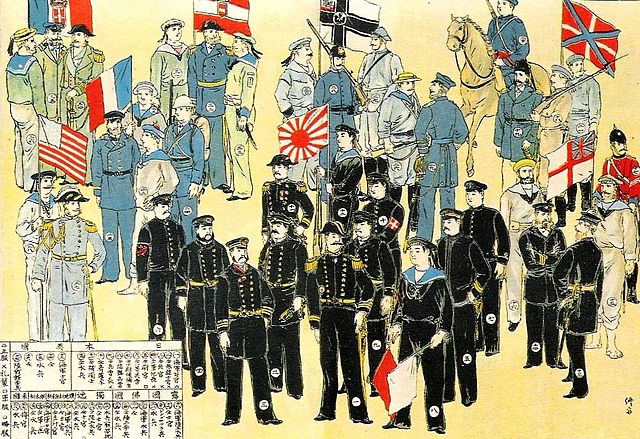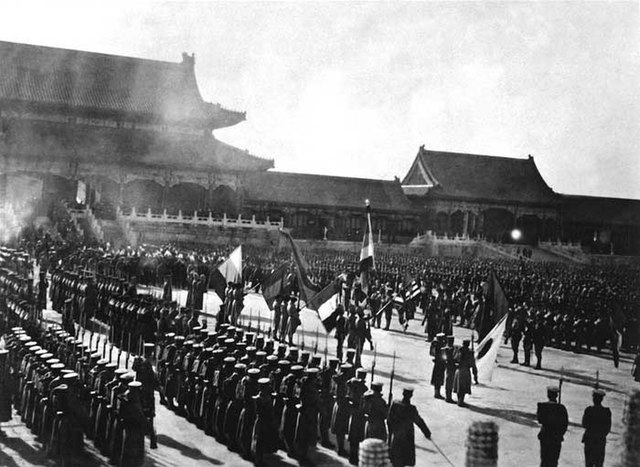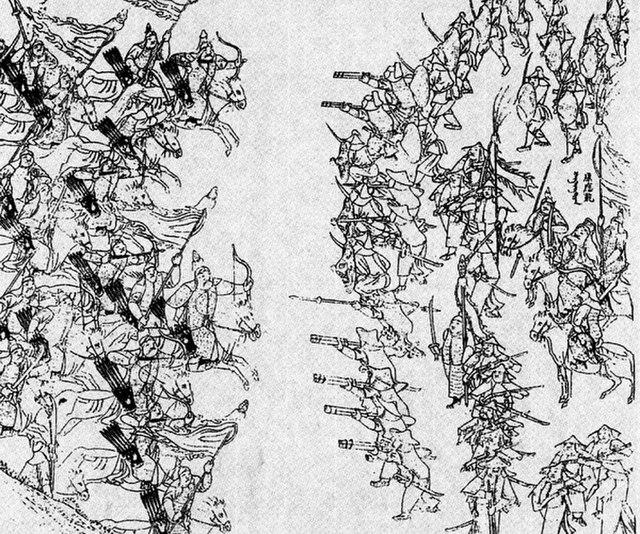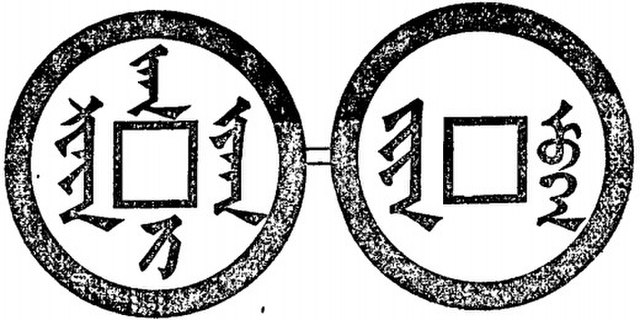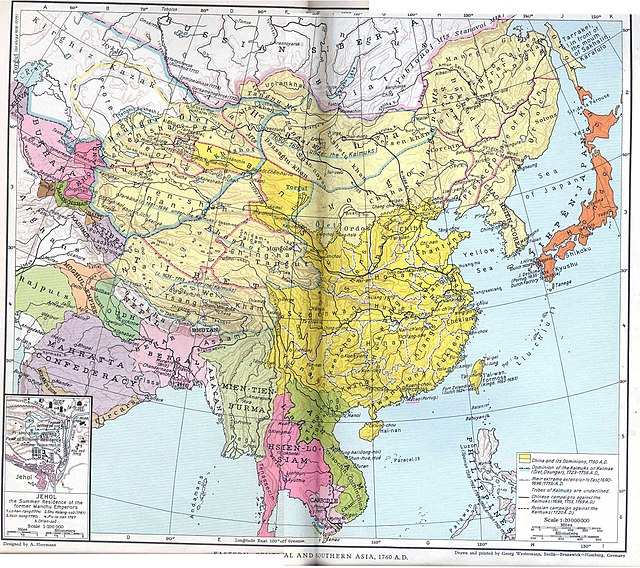The Eight-Nation Alliance was a multinational military coalition that invaded northern China in 1900 during the Boxer Rebellion, with the stated aim of relieving the foreign legations in Beijing, which was being besieged by the popular Boxer militiamen, who were determined to remove foreign imperialism in China. The allied forces consisted of about 45,000 troops from the eight nations of Germany, Japan, Russia, Britain, France, the United States, Italy, and Austria-Hungary. Neither the Chinese nor the quasi-concerted foreign allies issued a formal declaration of war.
Eight-Nation Alliance
Eight-Nation Alliance
German and Indian troops, Peking Legation Quarter, 1900
German troops with captured Boxer flags
The Qing dynasty, officially the Great Qing, was a Manchu-led imperial dynasty of China and the last imperial dynasty in Chinese history. The dynasty, proclaimed in Shenyang in 1636, seized control of Beijing in 1644, which is considered the start of the dynasty's rule. The dynasty lasted until 1912, when it was overthrown in the Xinhai Revolution. In Chinese historiography, the Qing dynasty was preceded by the Ming dynasty and succeeded by the Republic of China. The multi-ethnic Qing dynasty assembled the territorial base for modern China. It was the largest imperial dynasty in the history of China and in 1790 the fourth-largest empire in world history in terms of territorial size. With over 426 million citizens in 1907, it was the most populous country in the world at the time.
Manchu cavalry charging Ming infantry battle of Sarhu in 1619
Sura han ni chiha (Coins of Tiancong Khan) in Manchu alphabet
Dorgon (1612–1650)
The Qing conquest of the Ming and expansion of the empire

